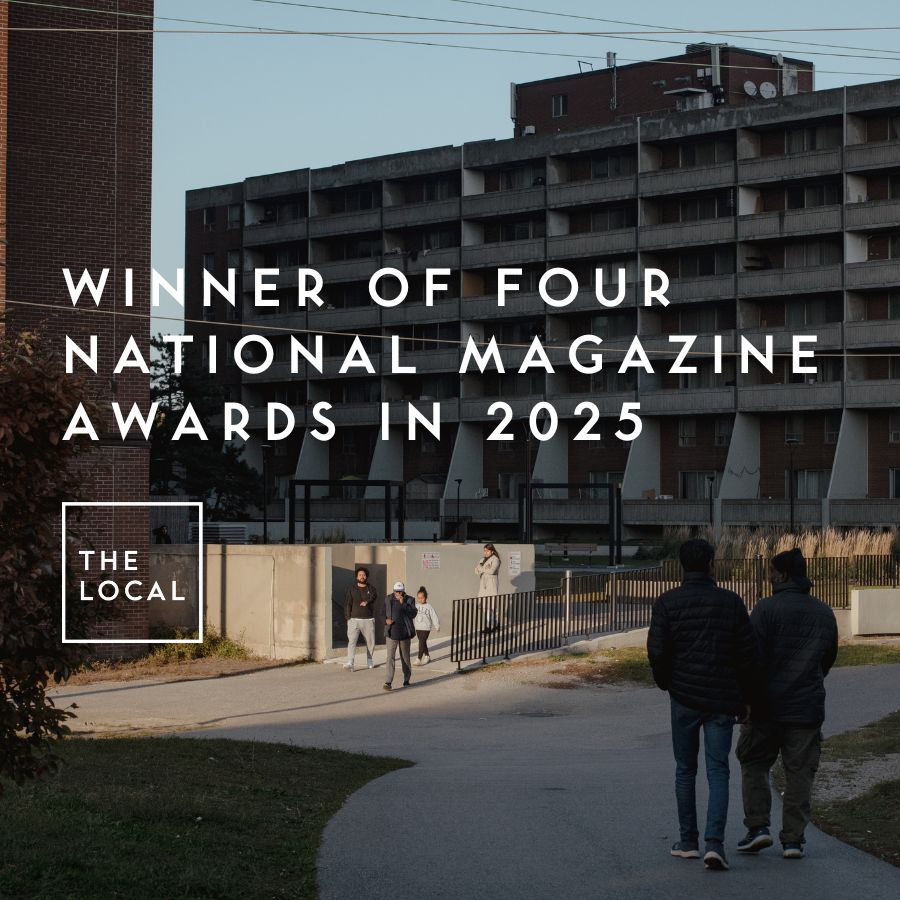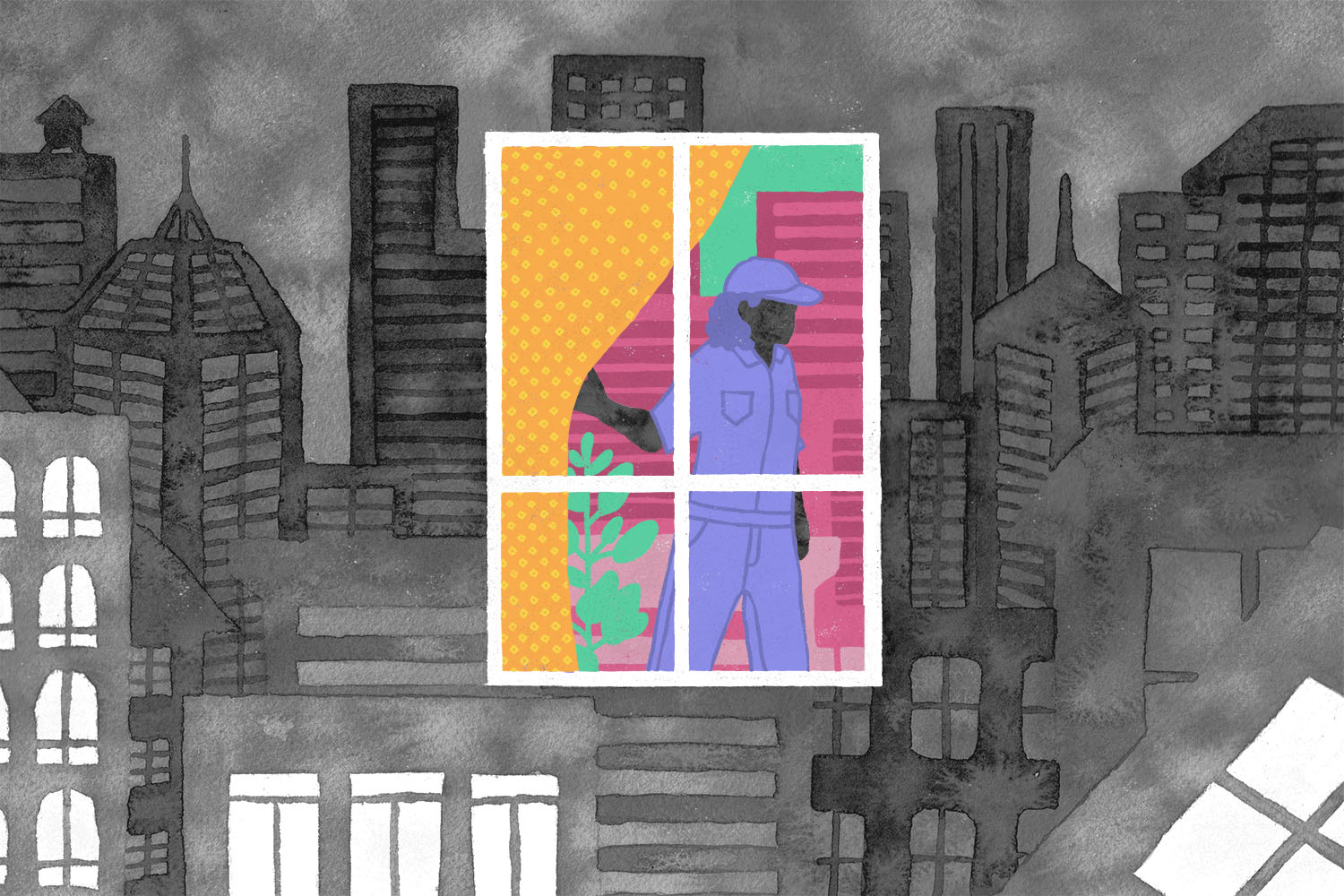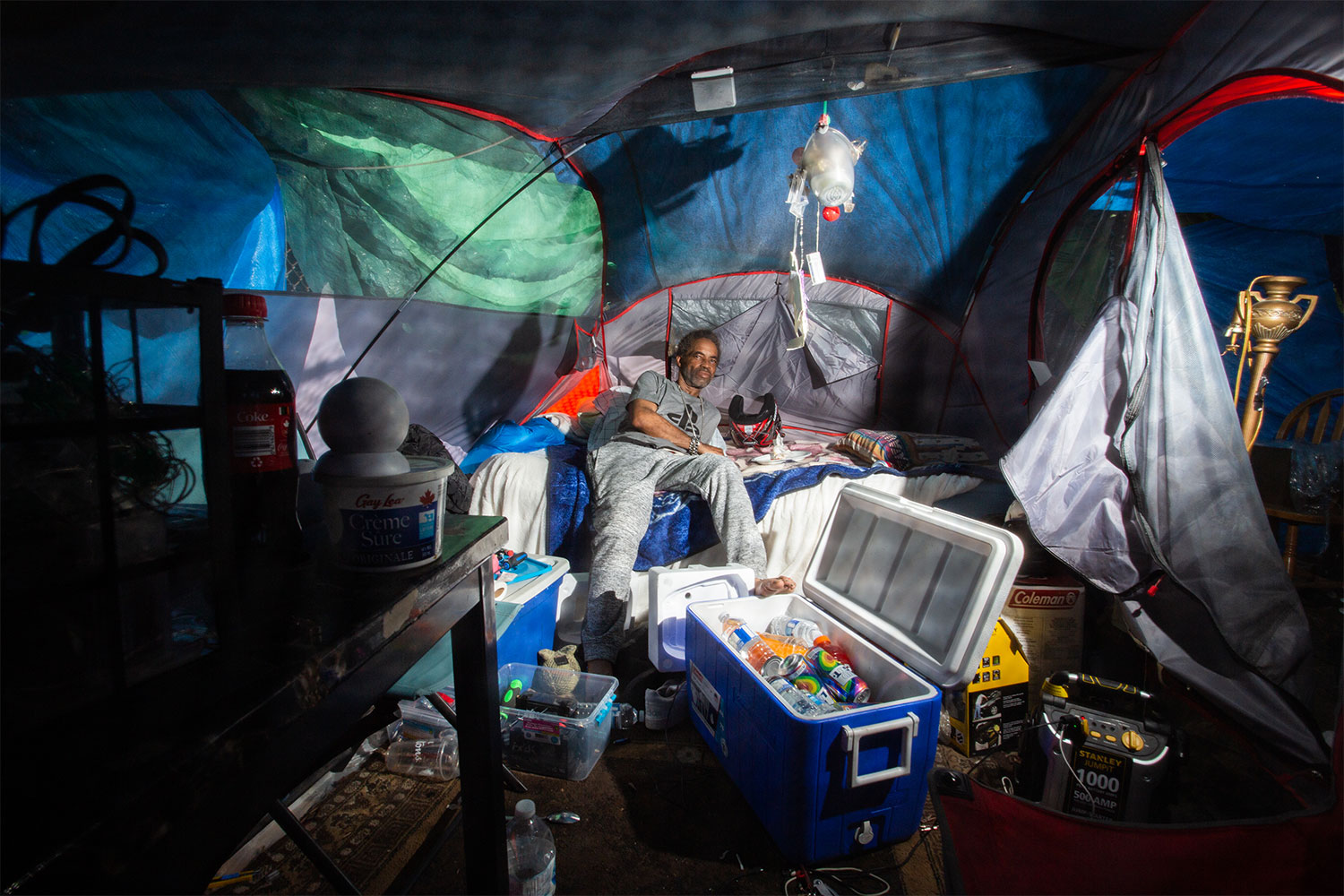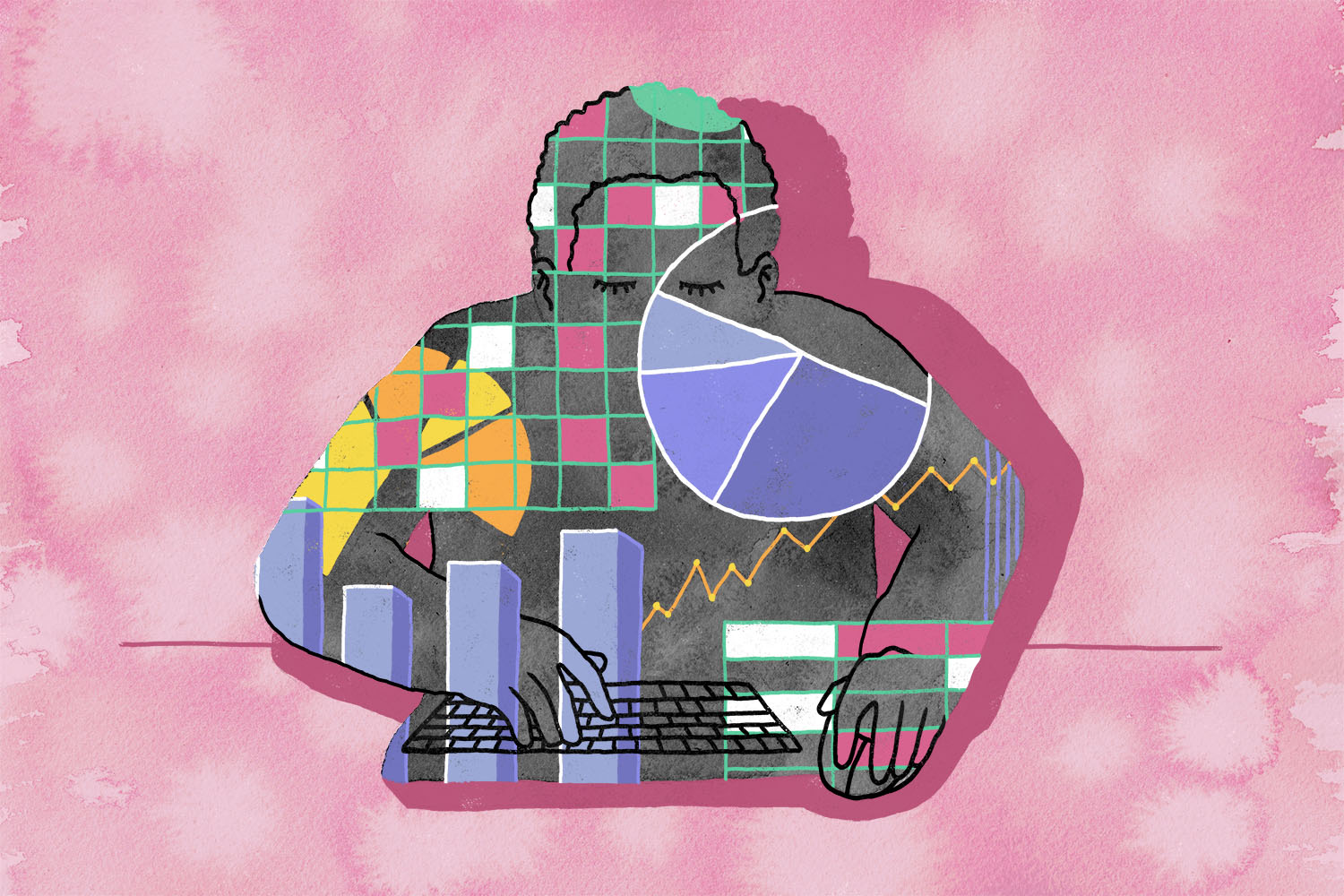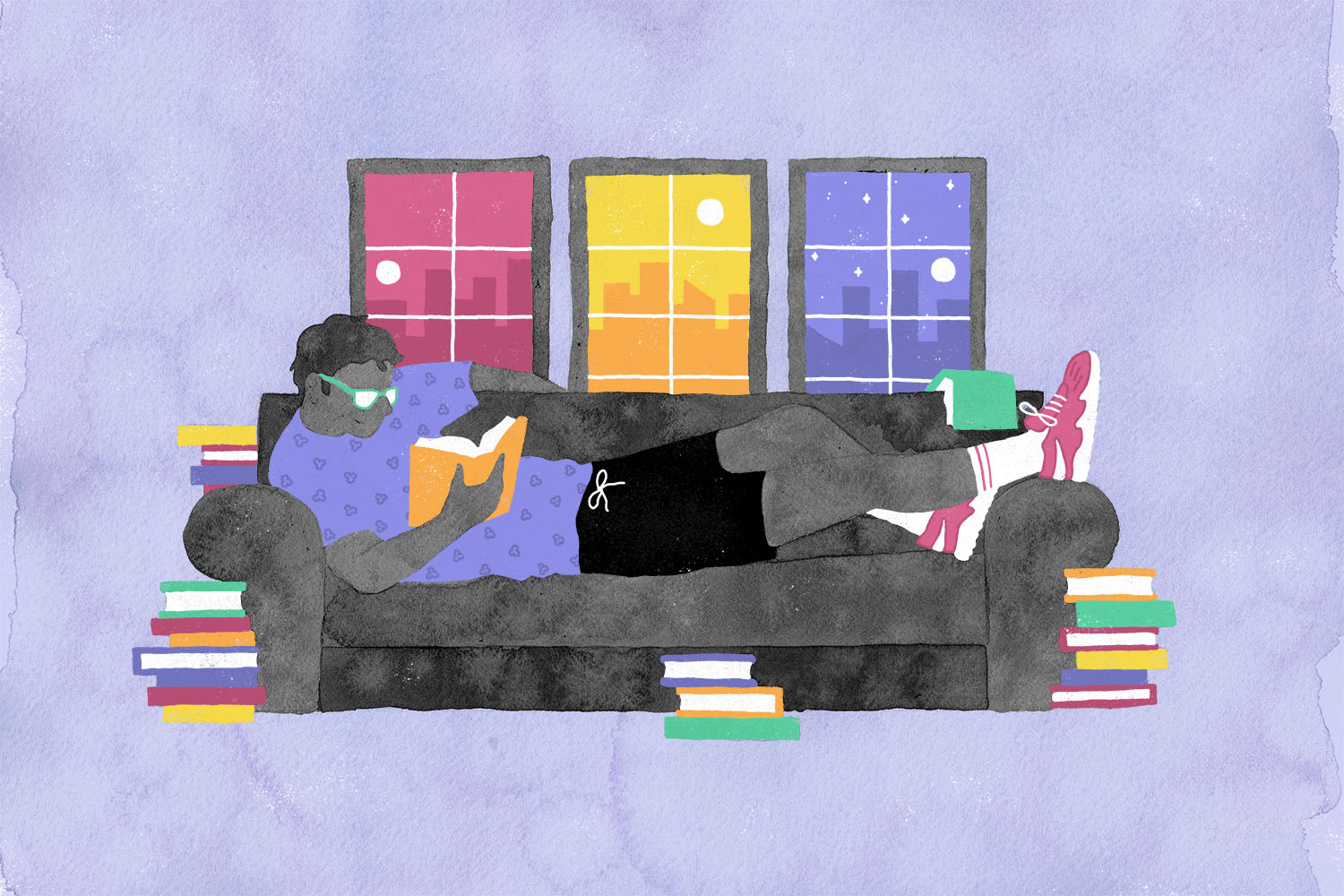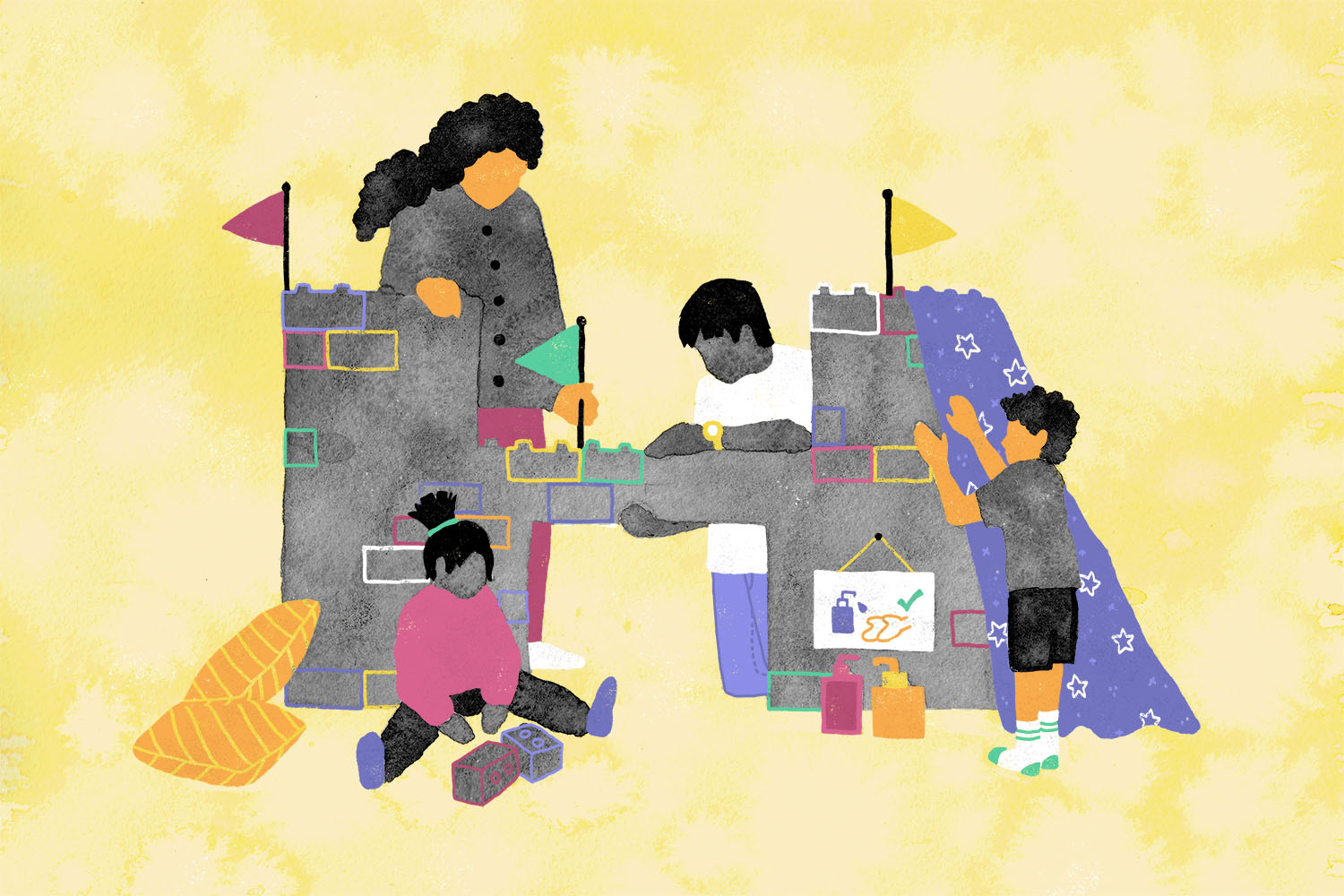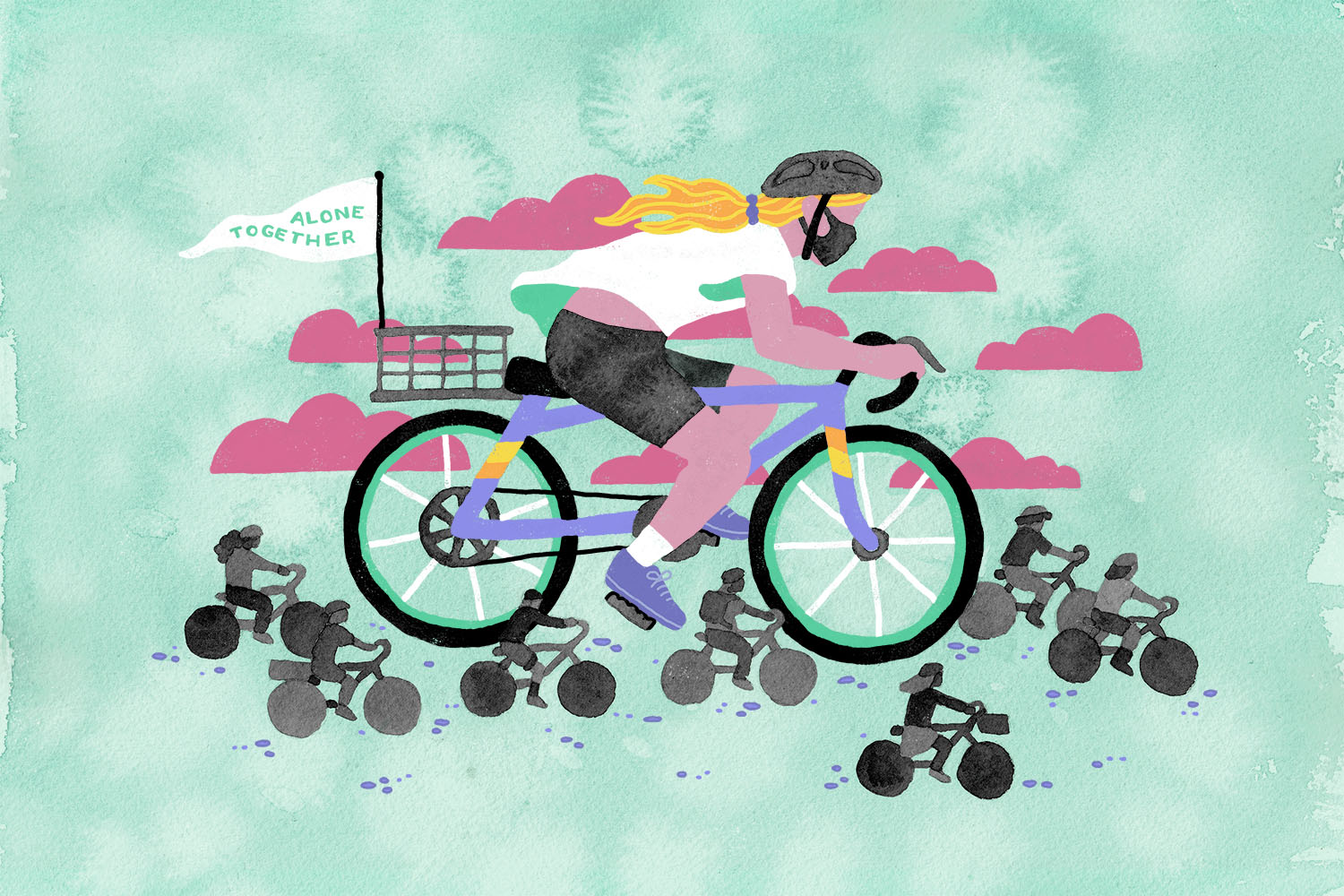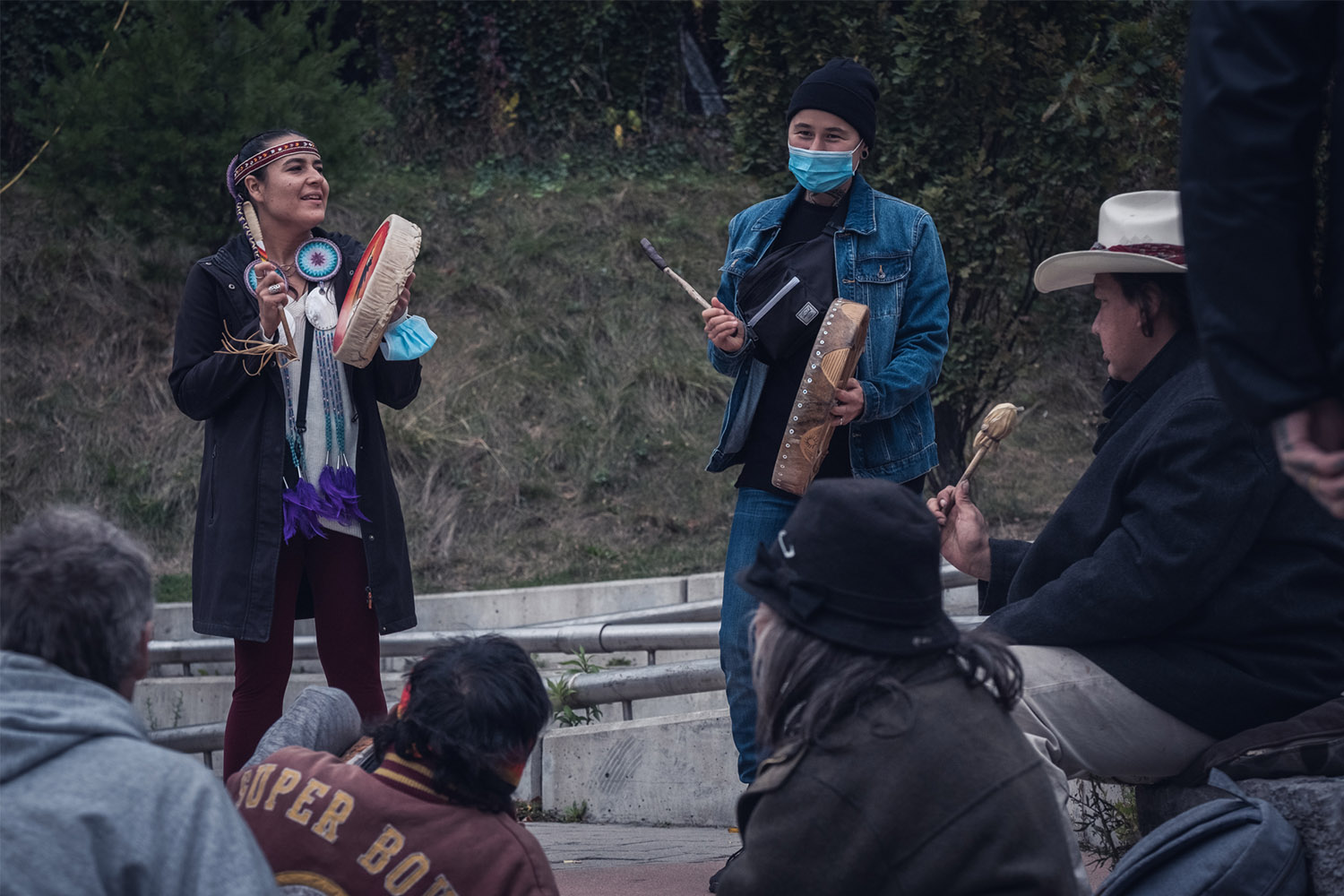
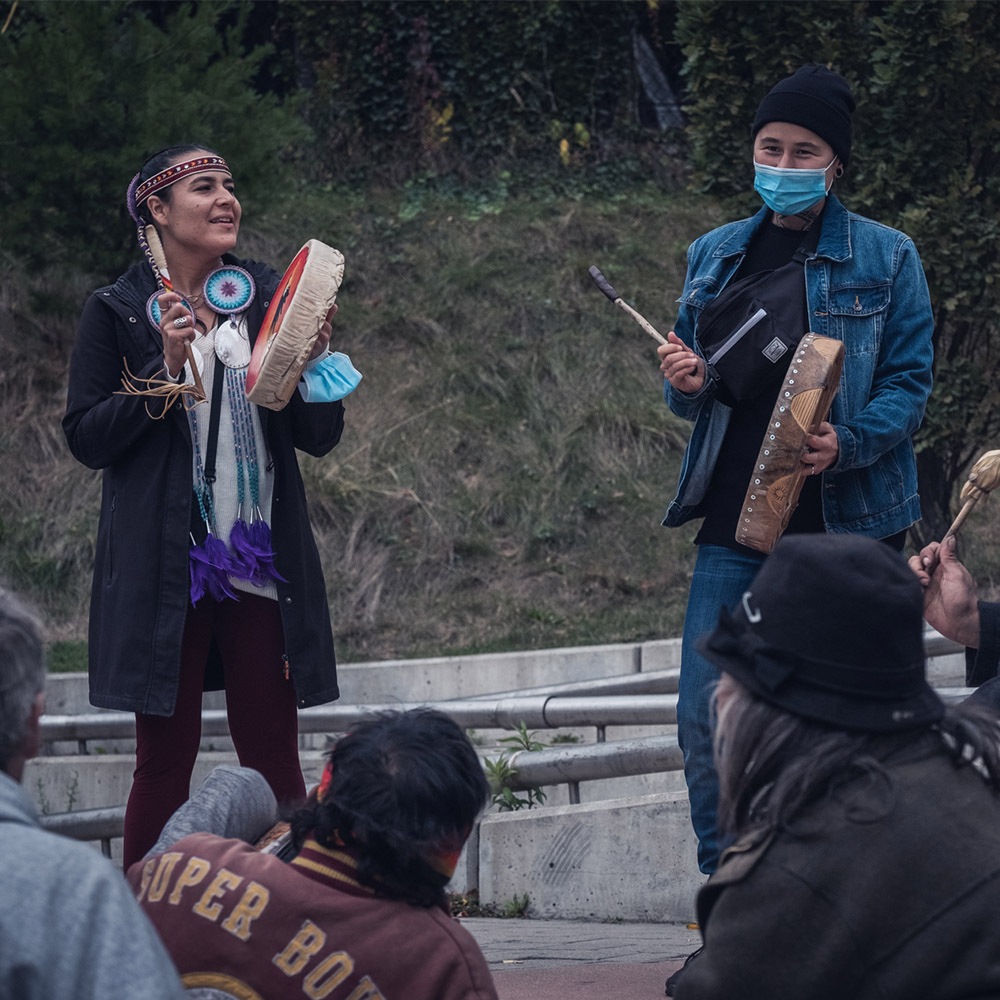
One day last April, a month after Ontario Premier Doug Ford declared a state-of-emergency, Nanook Gordon went for a walk in Parkdale and noticed something troubling.
Gordon is Inuvialuk and non-binary—a thirty-year-old with a warm smile and traditional Inuit line tattoos on their chin. Born in Inuvik, Northwest Territories, Gordon came to Toronto 18 years ago. Since then they’ve acted, modelled, and run the fundraising project, Feeding Canada, which sends basic necessities and baby supplies to communities in Nunavut.
There are plenty of people without homes in Parkdale, which has one of the largest Indigenous populations in Toronto. Gordon, too, had been houseless in the past. Walking through the neighbourhood that day, though, Gordon noticed the way pedestrians were avoiding an Indigenous man asking for change on the street, sometimes walking out into the road to avoid him. Gordon thought about how street people rely on people feeling compassionate enough to reach into their pockets and drop change into their palms. But if those pedestrians were side-stepping Indigenous people, where would that leave the city’s most vulnerable?
The question plagued Gordon, and they reached out to Les Harper, a Cree harm reduction worker who works at the South Riverdale Community Health Centre. Harper took Gordon around in the east side of the city, guiding them on the work he does handing out sandwiches and traditional medicines to unhoused Indigenous people.
Those walks inspired Gordon to start Toronto Indigenous Harm Reduction (TIHR), a grassroots organization devoted to bringing compassion, aid, and culture to Indigenous people living on Toronto’s streets. Several months later, their fiancé, Brianna Olson Pitawanakwat, joined TIHR. The 36-year-old member of the Wiikwemikong Unceded First Nation works with the Call Auntie Program at Seventh Generation Midwives as a community birth worker and is also a multi-media artist and an educator.
The organization launched in April, and over the course of the last year, as various lockdowns gripped the city and Torontonians were warned to distance themselves, Pitawanakwat and Gordon instead took to the city streets, safely, to build relationships with the Indigenous houseless community—not homeless, the duo say, because Indigenous people cannot be homeless on our own homelands.
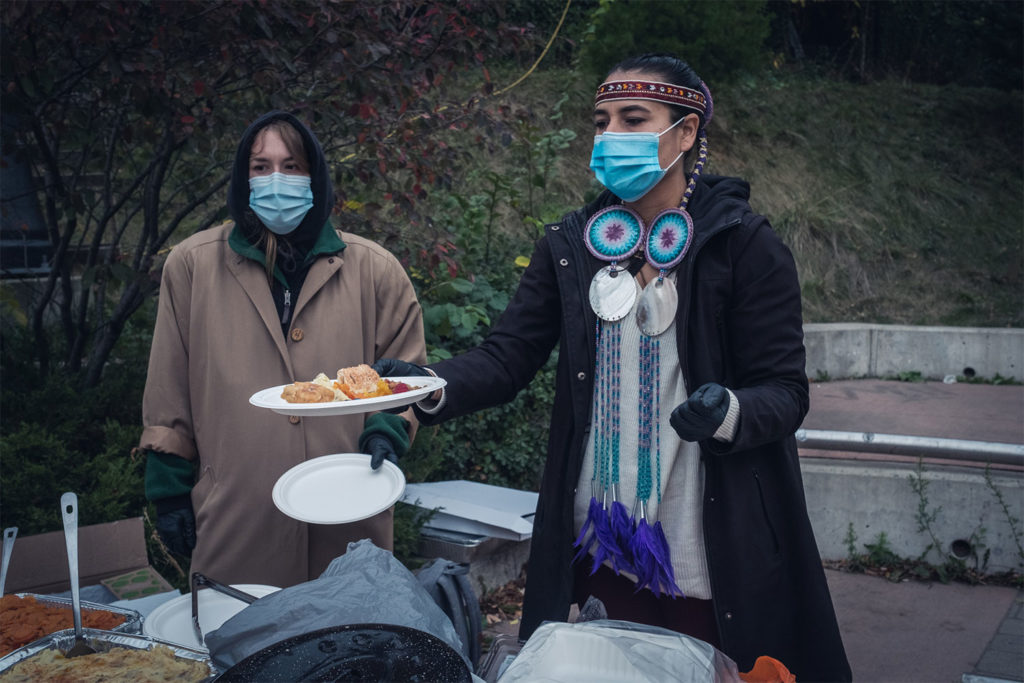
The work that Gordon and Pitawanakwat do starts from a place of empathy, and an emphasis on Indigenous culture. Indigenous people are vastly overrepresented in Toronto’s homeless population. It’s likely that the real numbers are larger than most surveys, but a Toronto Street Needs Assessment from 2018 reported that 38 percent of outdoor respondents identified as Indigenous, in a city where Indigenous people represent between 1 to 2.5 percent of the overall population.
A recent research project, Pekiwewin (Coming Home), held through the Indigenous health research project Well Living House, grapples with the roots of Indigenous homelessness and possible solutions. “Responses to Indigenous homelessness,” it reads, “need to be led by Indigenous Peoples and grounded in Indigenous worldviews and practices.”
Gordon and Pitawanakwat are uniquely positioned to do this work. Gordon describes themselves as the heart of TIHR, and their partner as the brains. Pitawanakwat has a background in harm reduction and was trained in Covid-19 response. She also knows what the street folk are experiencing, since she lived on the streets when she was younger, back on the prairies.
“Maybe a month into doing the work with Nanook, I actually met somebody that I was on the street with when I was 15, who was living in the encampment,” says Pitawanakwat. “It just brought home how important it is that we have lived experience. Nanook and I have both lost really close people in our families to overdose. We have an intimate knowledge of what folks are going through and, in many cases, have been through similar things.”
Pitawanakwat and Gordon walk through the west end of the city five days a week, carrying their drums and wearing Toronto Indigenous Harm Reduction pins. Since the pandemic began, encampments have sprung up in large numbers—a response to overcrowded shelters where social distancing was impossible. “People are congregating for safety in encampments,” says Pitawanakwat. “The encampments that we help, they’re right across from health centers, near the places that they get support. People are actually seeking refuge.”
The couple brings bannock (undercooked for the toothless), a roll of $5 bills to distribute, and cigarettes. They distribute harm reduction supplies, like safer injection and smoking equipment and naloxone kits. When winter approached, they added warm clothing to their donations, providing street folks with wool jackets, winter boots, military-grade sleeping bags, and encampment supplies. And whenever they see a familiar face, they greet them with the appropriate language, either aanin in Anishinaabemowin, or she:kon in Kanien’kéha.
Over the months, the small organization has built a network of relationships, bringing food and harm reduction kits to approximately 70 Indigenous street residents and providing over 3,000 meals. Starting with zero funding, the couple has had to get creative to finance their efforts. They’ve made beaded sealskin earrings and a beaded Raptors medallion, which they’ve used as raffle prizes. They received a Christmas edition OVO sweatshirt, donated by Noah Shebib, aka 40, Drake’s producer. Donations are also integral, and their GoFundMe subsidizes the efforts in the city, as well as another TIHR initiative, sending PPE to Indigenous communities in northern Canada and Alaska.
Gordon and Pitawanakwat also offer something sorely missing for many of these Indigenous street folks: their own culture. Gordon says that ceremony, traditional medicines like tobacco and sweetgrass, and traditional foods are rarely, if ever, accessible to people on Toronto’s streets.
In June, they began holding feasts—handing out traditional foods like white fish and wild rice every Sunday in partnership with the food program Dashmaawaan Bemaadzinjin (They Feed the People). Drums and dancing are frequently part of the socially distanced gatherings, with Pitawanakwat sometimes dancing in her jingle dress. One of the men they served, Grizz from the Great Lakes region, hadn’t had white fish in 15 or 20 years. When he tried theirs, he could name the exact place it came from, shocking the cook.
Pitawanakwat says one of the reasons they started the feasts and ceremony is because people are chronically grieving. This year has seen premature deaths from a range of reasons, including overdoses. In January, 2021, Toronto paramedics services reported 38 fatal calls for suspected opioid overdoses, the highest number since they began to collect the data. “There’s so many lives that are meaningful and very special, but they don’t get acknowledged for who they are because they were poor, sick, or drug or alcohol users,” says Pitawanakwat. “Drumming, hearing the songs and seeing the dances helps them process that. I would say grief and loss is a big theme in terms of what we do.”
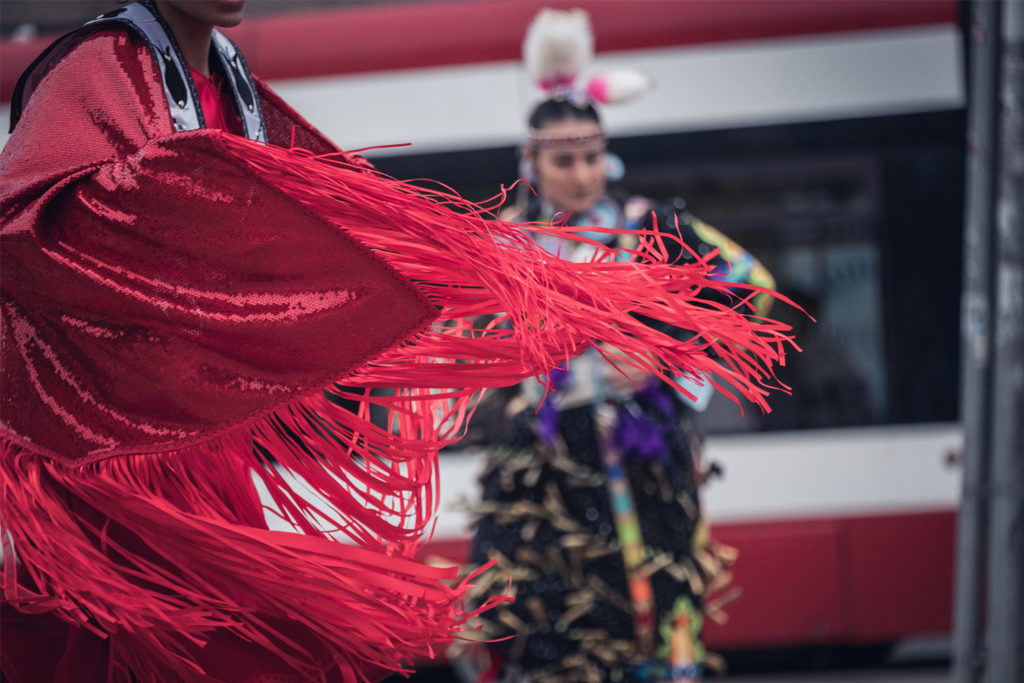
Today, walking the streets a year into the pandemic, they’ve noticed a change in mood. The summer vibe of “all good,” has changed, as frigid winter temperatures have caused further stress to stay warm and survive. It’s physically demanding to live outdoors.
The couple has increased their check-ins to seven days a week. “The city is apprehending and stealing the tiny shelters that Khaleel [Seivwright] made, and we want to make sure that people are safe, that they’re staying dry and warm, or not getting apprehended by the city,” says Pitawanakwat.
A few weeks ago, a woman in an encampment told Pitawanakwat how frustrated and upset she was. Her ancestors had lived on the land for tens of thousands of years, surviving with nothing but fire and water, and now she couldn’t access either. “She literally can’t even keep warm at night,” says Pitawanakwat. “It’s this myth that the city has perpetuated, that there’s shelter available.”
TIHR is a lot of work to shoulder, but the couple ensure they take time for themselves, going to a cabin in Wiikwemikong, Pitawanakwat’s community, to unwind every few months. It fuels them to keep going, and helps them look towards the future. They plan to do more youth mentorship, bringing their experience to a younger generation that seems to naturally understand the need for harm reduction. “They’re like, ‘why would you not care for or help these people?’” says Gordon. “I’m so excited for the next generation, and to educate them on what we know.”
Gordon believes if the pandemic hadn’t opened their eyes to the treatment of the Indigenous street people they witnessed, they wouldn’t have created TIHR. “The pandemic really helped me slow down and see how our people are being treated, and it’s changed my life in a really positive way.” Recently, they were getting into the car, leaving a visit with an Indigenous woman they see often, when she called out to them. “It’s a great day to be Indigenous,” she shouted. “That felt really good,” says Gordon.
For Pitawanakwat, working with TIHR is a full circle moment. “I can actually practice what I believe in deeply,” she says. “If we look at the history of what’s happened to our people, when we were decimated by alcohol rations, and the systemic deprivation and starvation of our communities, harm reduction practices are the reason we’re still here today. We might not have called them that back then, but it’s meeting people where they’re at. And that’s literally what Nanook and I are doing.”
